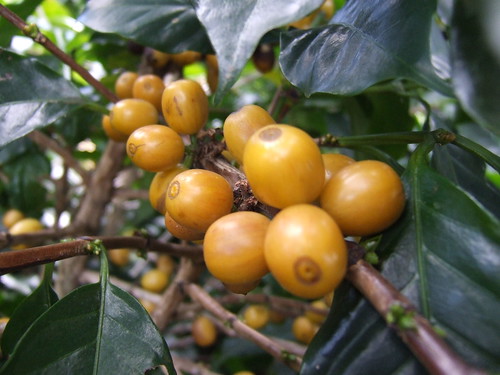
Note: This is an introduction to what I hope will be several essays about direct-trade coffee.
Thunderbird is committed to using only direct-trade coffee of the highest quality. Phrases like "fair trade," "direct trade," "farm trade," and "direct relationship coffee" have a lot of power, and they're often thrown around to give the roaster or coffee shop legitimacy. But what do they really mean? How can you tell what's "real" about a coffee shop or roaster's buying methods?
In short, direct relationship coffee ". . . takes a substantial investment of time and money to build a business based on working directly with farmers. It also takes an infrastructure to allow someone to be out of the office a total of several months over the course of the year," according to Mike McKim at Cuvee Coffee Roasters. [Read Mike's discussion of direct-trade coffee here.] It's not just a two-day trip and a snapshot with a farmer. It's about building a legitimate relationship relationship between a roaster and a farm or grower, and it's not something that happens overnight.
Keep checking our blog to learn more about how direct-trade coffee works! For now, a New York Times article from 2007 may stir up some more interest.



